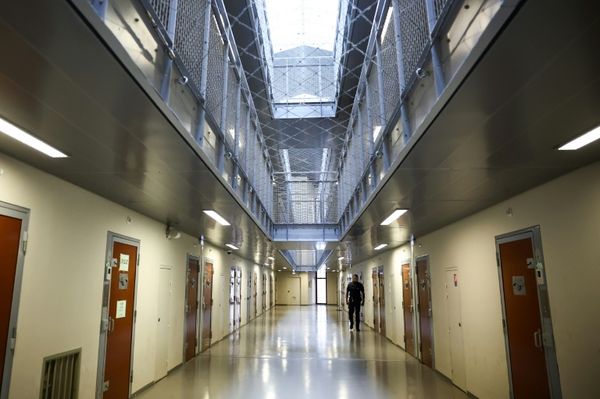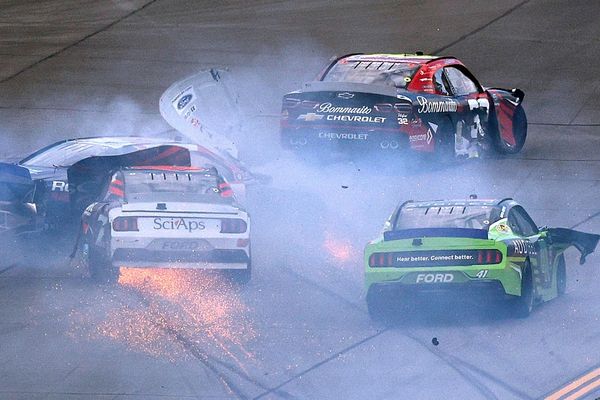
Their city, say the residents of Delhi, has never looked so pristine.
As some of the world’s most powerful leaders, Rishi Sunak and Joe Biden among them, descend on India’s capital this weekend for the G20 leaders’ summit, a frantic, and to some controversial, beautification effort has been in force.
Gone are the poverty-stricken families often living in make-shift shelters along roads and underpasses. Gone too are the drowsy street dogs that usually line every pavement. Slums and unofficial housing have been bulldozered and about 300,000 street vendors have also been evicted from central thoroughfares.
In their place stand new 6ft lion statues and fountains erected on roundabouts with beds abundant with flowers. In the coming days, dozens of people will be stationed outside Delhi’s prominent venues and hotels to make the noises of langur monkeys, in a bid to keep the animals away from the high profile guests. And thousands of police have been stationed along the roads, tasked with – among other things – protecting the almost 700,000 new potted plants placed across the capital, which this week began disappearing.
It is widely acknowledged that few countries have made such a spectacle of hosting the G20, the group of 20 nations representing the world’s biggest economies, as India has over the past year. Since India’s presidency began at the beginning of the year, it has been marked by a publicity campaign to rival only general elections.
In cities, towns, airports, train stations and highways across the country, it is hard to travel a few metres without encountering a billboard or advert bearing the face of prime minister Narendra Modi, declaring India the “mother of democracy”, and asserting that “now is the time for an ambitious and decisive G20”. Over 200 G20 meetings, more than in any previous summit, have been hosted in cities across the country, all held with great fanfare.

The messaging of the campaign has been forthright: that under Modi, India has become a global player to be reckoned with and the prestige of the G20, and its array of important foreign guests, will be India’s moment to show this off to the world.
Mohan Kumar, a former Indian ambassador to France and Bahrain, said that “we probably overdid it a little,” but emphasised that as India is still denied a permanent seat at the UN security council, “this is the only major geopolitical forum in which India is properly represented, so a big push is to be expected.”
But with Chinese president Xi Jinping confirming this week that he would not be attending, and with Russian president Vladimir Putin’s absence already settled, some have questioned if this year’s G20 may end up delivering more style than substance on the biggest issues of the day, particularly if the countries fail to agree on a joint communique for the first time since the meeting’s began in 1999. Though often toughly fought over and watered down, the joint communique is the key consensus document between G20 countries.
However, in all meetings so far this year, they have been unable to get China and Russia to agree to language relating not just to the Ukraine war but also renewable energy, climate change and minerals.
China, which is engaged in a tense border standoff with India, even objected to India’s inclusion of the sanskrit phrase Vasudhaiva Kutumbakam – meaning ‘the world is one family’ – in documents, claiming that sanskrit is not one of the six official languages recognised by the United Nations.
Geopolitical success versus PR exercise
Alok Sheel, who served as an Indian interlocutor at several G20 summits and was on the prime minister’s economic advisory council, said he was concerned that optics had overshadowed diplomatic efforts, especially as this year’s meeting will take place during one of the trickiest periods for G20 relations.
“I attended the first seven summits, and I’ve never seen so much publicity,” said Sheel. “But the G20 is more about multilateral outcomes and I would have hoped there would have been greater focus on that. There is currently a question mark over the success of India’s presidency because it might be the first summit where there is not an agreement.”

Analysts say the G20 advertising onslaught to present Modi’s India as a growing global powerhouse is as much intended for domestic audiences as it is for the visiting foreign dignitaries. “For too long, India was seen as a country of one billion hungry stomachs,” said Modi in an interview on Sunday. “Now it is one billion aspirational minds and two billion skilled hands.”
Many have speculated that India’s decision to defer its G20 presidency to 2023 was done to ensure it coincided with the run up to next year’s general election, in which Modi and his Bharatiya Janata Party (BJP) government will be seeking a third term with foreign policy very much at the forefront of the campaign.
“In the 2024 elections, Mr Modi wants to pitch himself as a global statesman, as the leader of a country that is respected and taken seriously by the international community,” said Happymon Jacob, a professor of foreign policy at Jawaharlal Nehru University in Delhi. “The G20 summit will be used by the BJP to showcase that narrative and provide a shot in the arm for their campaign.”
It certainly comes at a time when western governments have been lining up to play host to Modi, as India’s influence – be it as the world’s most populous country, its fifth largest and fastest growing economy, or as a vital counterweight to China – has grown. In France, he was recently guest of honour at Bastille Day, in the US he was given the honour of a full state visit by Biden and during his recent visit to Australia, prime minister Anthony Albanese referred to him as “the boss” in front of a 20,000 strong crowd in Sydney.

Those in power say that under Modi India is finally being afforded the international respect and geopolitical standing it has long been deprived of. As India’s foreign minister Subrahmanyam Jaishankar said, “India has assumed the G20 Presidency at a moment when India is mattering more and more to the world”. India has also used the G20 as a platform to assert itself as a leader of the Global South, a title it is keen to keep from China, and one of its pivotal policies as G20 president has been to open up membership to the African Union.
Nonetheless, some have pointed out the discrepancy between India’s international projection of itself as the “mother of democracy” at a time when domestically Modi’s government has overseen a period of significant democratic backsliding and growing authoritarianism in the country, in everything from freedom of the press, to freedom of religion and attacks on civil society.
Yet even though other G20 members are well aware of the erosion of democratic space in India, it is unlikely to be raised as an issue at the G20 leaders’ summit this weekend, said Avinash Paliwal, associate professor in international relations at SOAS; instead it is likely efforts will be made by member countries such as the UK, France and the US to deepen strategic and economic ties with India at the summit.
“It’s not a country that has been shunned, it’s a country being embraced despite all the complicated realities on the ground,” he said.
Paliwal said that even if the G20 countries failed to come up with an agreed joint statement, the summit would still domestically be pitched as a success by the Modi government.
“You can already see the spin from government-linked outfits,” he said, “that even without Xi Jinping or a joint communique, the G20 summit and presidency will be a sold as a geopolitical success for India.”







